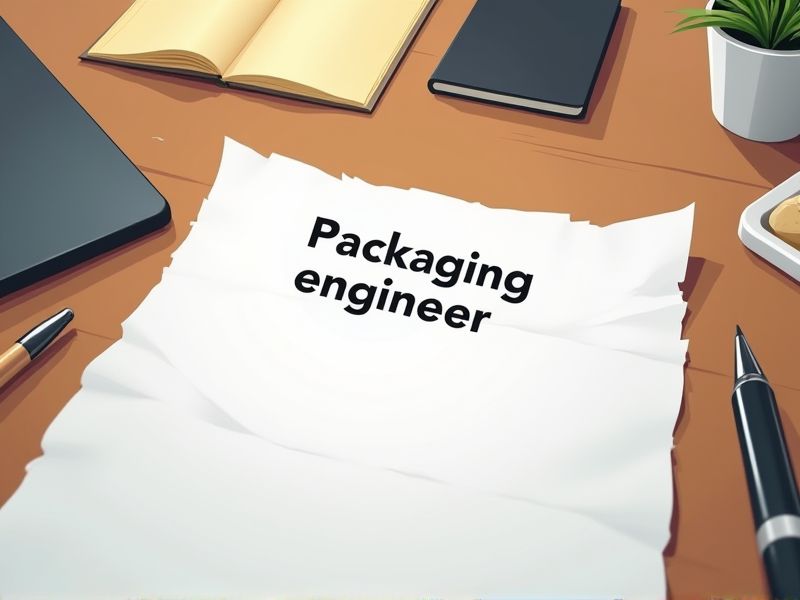
Packaging engineers require specific certifications to ensure compliance with industry standards and regulations, which directly impacts product safety and quality. Certifications demonstrate a professional's knowledge in materials science, logistics, and sustainability practices critical for efficient packaging solutions. They also enhance credibility and career opportunities within a competitive market. Essential certifications for packaging engineers include ISTA Certified Packaging Lab Technologist (CPLT) and Six Sigma Green Belt.
Certified Packaging Professional (CPP)
Obtaining the Certified Packaging Professional (CPP) credential often enhances a packaging engineer's credibility by formally recognizing their expertise and knowledge in the packaging field. Certification can lead to better job opportunities, as many employers prioritize or require certified professionals for advanced roles. The CPP program keeps professionals updated with the latest industry standards and innovations, fostering continuous learning. Achieving certification can also result in increased salary potential, as it signifies mastery and commitment to the packaging profession.
ISTA Certification
ISTA Certification validates a packaging engineer's ability to design and evaluate packaging that meets global shipment standards. Companies recognize ISTA Certification as a mark of credibility, enhancing job prospects and career growth for packaging engineers. The certification process provides in-depth knowledge of test procedures, which helps in reducing product damage during transit. By following ISTA protocols, companies can minimize costly returns and customer dissatisfaction related to damaged goods.
Certified Sustainable Packaging Professional (CSPP)
A Certified Sustainable Packaging Professional (CSPP) credential equips packaging engineers with the expertise to implement eco-friendly solutions amid increasing environmental regulations. This certification enhances their capability to design packaging that reduces waste and improves recyclability, aligning with global sustainability goals. As consumer demand for sustainable products rises, having a CSPP strengthens a packaging engineer's competitive edge in the job market. It ensures engineers are adept at integrating sustainable practices into their designs, which can lead to cost savings and a positive brand image for companies they work with.
Six Sigma Green Belt Certification
Obtaining a Six Sigma Green Belt Certification enhances a packaging engineer's ability to streamline manufacturing processes, reducing waste and increasing efficiency. The certification equips them with the statistical tools necessary to improve product quality and reliability, crucial in competitive markets. Employers often seek certified professionals due to their capability to implement cost-saving measures and minimize errors. Understanding Six Sigma methodologies fosters better collaboration within cross-functional teams, leading to more innovative packaging solutions.
Lean Manufacturing Certification
Lean Manufacturing Certification equips packaging engineers with skills to identify and eliminate waste, enhancing production efficiency. Engineers become adept at streamlining processes, which reduces costs and improves time-to-market for packaged products. Certified engineers can better meet consumer demands for sustainable and minimalistic packaging solutions through lean principles. Companies with lean-certified engineers often experience improved collaboration across departments, fostering innovation in packaging design.
Project Management Professional (PMP)
Obtaining a Project Management Professional (PMP) certification equips a packaging engineer with structured project management skills, leading to enhanced project efficiency and success rates. The certification instills a standardized approach to problem-solving, crucial when managing complex packaging projects and ensuring deadlines are met without compromising quality. With PMP skills, a packaging engineer can optimize resource allocation, reducing waste and cutting costs in the packaging processes. Hiring PMC-certified individuals often signals to employers a commitment to professional growth and capability in overseeing large-scale projects from conception to execution.
Certified Quality Engineer (CQE)
Certified Quality Engineers (CQE) play a critical role in ensuring that packaging engineers adhere to rigorous quality standards during the design and production phases. Their expertise in quality management systems can lead to fewer defects and recalls, which are essential in maintaining company reputation and customer satisfaction. CQEs assist in the implementation of statistical process controls that improve the consistency and safety of packaging solutions. Their involvement often results in cost savings through enhanced efficiency and waste reduction.
APICS Certified in Production and Inventory Management (CPIM)
A Packaging Engineer benefits from APICS CPIM certification as it deepens their understanding of supply chain principles, leading to more efficient inventory management. Enhanced production planning skills gained through the certification enable Packaging Engineers to reduce downtime and optimize materials usage. Improved knowledge of demand forecasting and procurement processes helps them align packaging solutions with production needs effectively. The certification instills skills that drive cost savings by streamlining logistics and minimizing waste in packaging operations.
CAD Certification for Packaging Design
Earning a CAD Certification for Packaging Design equips a packaging engineer with specialized skills in using computer-aided design software effectively, enhancing design precision. It leads to improved communication with team members by providing a common technical language and standardized design protocols. Certification often results in greater career opportunities, as many employers prefer professionals with validated expertise in CAD for packaging. The certification process encourages continuous learning, keeping engineers updated with the latest design trends and technological advancements in packaging.
OSHA Safety Certification
OSHA Safety Certification ensures a packaging engineer understands workplace safety standards, reducing the risk of accidents. Proper training leads to safer work environments, promoting efficiency and productivity. Compliance with OSHA regulations helps companies avoid costly fines and legal issues. Certification also enhances a packaging engineer's credibility, potentially increasing career opportunities and earning potential.
Summary
By obtaining certifications, you as a packaging engineer can enhance your technical skills and industry knowledge. This can lead to increased job opportunities and higher earning potential. Certifications often validate your expertise, which may result in greater responsibility and leadership roles. Your improved credibility can foster trust with employers and clients, making you a more attractive candidate in the competitive job market.
